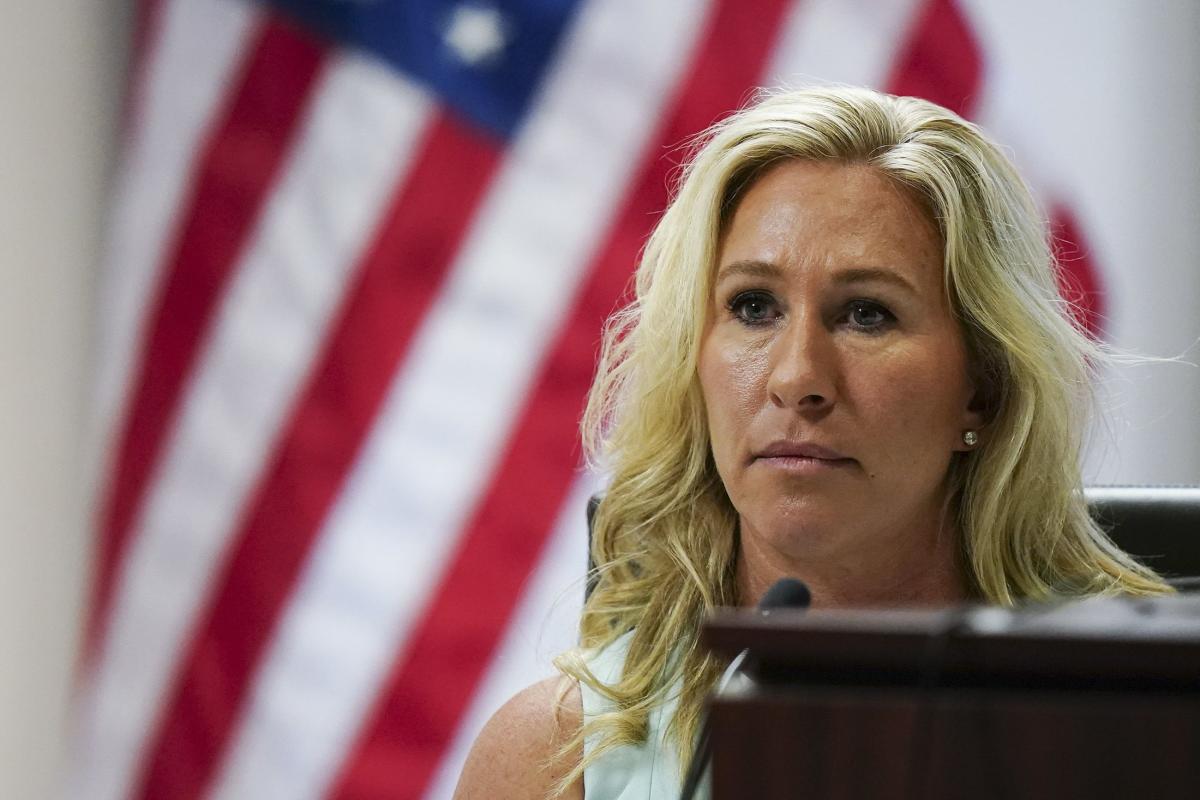(Bloomberg) — The courtroom drama is over for Representative Marjorie Taylor Greene and her fight against Georgia’s enforcement of a ban on office holders who support a post-Civil War insurgency.
Most read by Bloomberg
The 11th US Circuit Court of Appeals said Thursday that Greene’s lawsuit was out of the question, noting that she prevailed in a lawsuit that was supposed to bar her from running for reelection this year. But a judge indicated she would have sided with the Republican legislature by offering a potential roadmap to other candidates vying for their ability to serve.
Greene will run for election on Nov. 8, after successfully defending her eligibility against a challenge from Georgian voters and going on to win the Republican primary.
Voters claimed Greene played a key role in spurring the January 6, 2021 attack on the U.S. Capitol, in which supporters of former President Donald Trump broke into the building as Congress gathered to certify the 2020 presidential election, which Joe Biden won.
Voters sought to disqualify Greene through a state law that allows for eligibility challenges, and they invoked the 14th Amendment’s Disqualification Insurrection Provision. A state administrative law judge found voters hadn’t provided enough evidence; state officials and courts refused to interfere with that decision.
Meanwhile, a federal judge refused to give Greene an injunction to halt the state trial, saying she was unlikely to win her broader challenges against Georgia’s power to consider and possibly enforce the disqualification of the insurgency.
Greene appealed to the 11th Circuit, and on Thursday a panel of three judges ruled the case moot as she retained her spot on the ballot. The panel consisted of two nominees from former President Donald Trump, Judges Elizabeth Branch and Barbara Lagoa, and Judge Charles Wilson, who confirmed under former President Bill Clinton.
But Branch wrote separately to say she thought Greene would be entitled to an injunction because Georgia unconstitutionally “invaded Congress’ role to assess the qualifications of its members.”
Branch wrote that Georgia falsely attempted to add a “substantial qualification” to Greene’s eligibility to run for office and that doing so violated an “escape hatch” in 14th Amendment disqualification language that allowed Congress to ignore it by a two-thirds majority vote of each chamber.
Greene’s attorney James Bopp Jr. wrote that while the case was moot, “However, we appreciate at least one judge who agreed with us on the grounds.” Representatives of the State Secretary of Georgia and the Attorney General’s offices did not immediately respond to requests for comment.
John Bonifaz, chairman of Free Speech for People, an advocacy group representing voters in Georgia, said they saw Greene’s inability to overturn the lower court’s ruling as a “great victory.” The district judge’s decision is not binding, but Bonifaz said it contained “important” findings that other judges and lawyers might mention in the future.
Bonifaz said that if Trump formally announces his intention to run for president in 2024, Free Speech for People would file disqualification challenges in multiple states.
In September, a local official in Otero County, New Mexico, became the first person involved in the January 6 attack to be removed from office under the insurgency language. Couy Griffin, the founder of Cowboys for Trump, was convicted of a felony for being in the Capitol illegally.
Earlier on Thursday, Citizens for Responsibility and Ethics in Washington, a government watchdog group involved in the Griffin case, announced it would pursue disqualification challenges to keep Trump off the vote again.
Most read from Bloomberg Businessweek
©2022 Bloomberg LP

